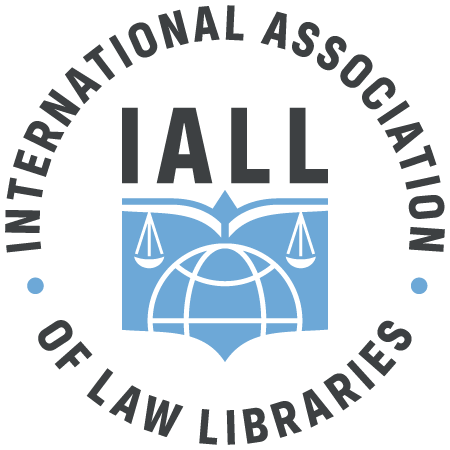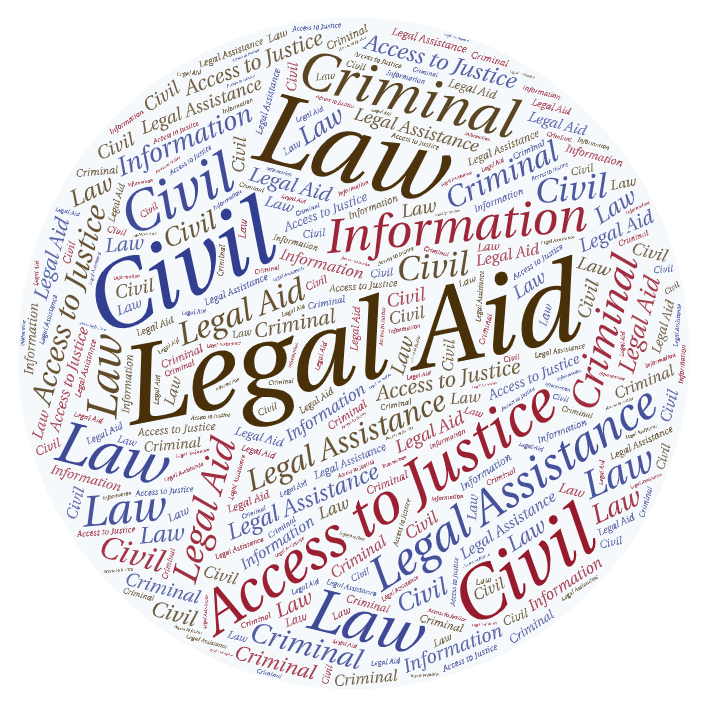By:
Jean M. Wenger, Director of the Law Library/Senior Lecturer
Chicago-Kent College of Law Library, Chicago, Illinois, USA
The author is a member of the IALL Board of Directors
Access to justice is integral to the rule of law. Access to justice enables people to have their voices heard, to exercise their rights, to challenge discrimination, or to hold decision-makers accountable.[1] In 2012 the Special Rapporteur on Extreme Poverty and Human Rights, Office of the High Commissioner for Human Rights, called access to justice itself a human right.[2] Countries and institutions have tried various strategies to expand access to justice including legislating legal aid services, increasing access to legal information, and simplifying procedures and paperwork. Of these strategies, the provision of legal aid is perhaps the most significant.
This post will introduce resources that survey and describe legal aid provision in countries worldwide. The current state of legal aid differs from country to country, given its political and social history, the status of its legal profession, and the country’s commitment to the rule of law.
What is legal aid? Legal aid generally encompasses legal assistance to people unable to afford legal representation. Legal assistance to indigent criminal defendants most often comes to mind. However, legal assistance for people dealing with civil or administrative matters, such as family law, consumer debt, and housing is gaining greater recognition.
How do countries promote legal aid? In some countries the national constitution contains articles related to the right to legal aid, and others have passed legislation. For example, Brazil and Kenya have directives for state-funded legal aid in their federal constitution and through legislation.
Legal aid directives appear in supranational legislation. Article 6 of the European Convention on Human Rights guarantees the right to legal assistance to those charged with a criminal offence where the defendant has insufficient means to pay for legal assistance.[3] Article 47 of the Charter of Fundamental Rights of the European Union states that “[l]egal aid shall be made available to those who lack sufficient resources in so far as such aid is necessary to ensure effective access to justice.”[4]
The United Nations (“UN”) recognizes the importance of access to justice and legal aid. The UN General Assembly passed a resolution adopting the 2030 Agenda for Sustainable Development (“Agenda”) in 2015.[5] The Agenda contains 17 Sustainable Development Goals, of which Goal 16 states: “[p]romote peaceful and inclusive societies for sustainable development, provide access to justice for all and build effective, accountable and inclusive institutions at all levels.”[6] Coinciding with the Agenda, in 2014, the UN Development Programme and the UN Office on Drugs and Crime undertook the Global Study on Legal Aid (“Global Study”) to establish a baseline understanding of how countries address the right to legal aid in civil, criminal, and administrative cases. The Global Study includes several documents. A Global Report presents data, findings, and recommendations on access and provision of legal aid services worldwide.[7] The Country Profiles describe legal aid delivery in 49 countries.[8]
Libraries are integral to the success of the UN Agenda.[9] Law librarians see upfront how institutions advance access to justice by providing legal aid. Lawyers in law firms offer pro bono legal services, judges and court personnel advance access to justice initiatives, and students in law schools participate in legal aid clinics. Law librarians champion meaningful access to information which helps courts, governments, and other institutions advance justice and legal aid initiatives.
Best wishes for a peaceful, healthy, and just 2022.
[1] Access to Justice, United Nations and the Rule of Law
[2] Statement by the Special Rapporteur on Extreme Poverty and Human Rights at the 67th session of the General Assembly
[3] European Convention on Human Rights
[4] Charter of Fundamental Rights of the European Union
[5] General Assembly resolution 70/1, Transforming our world: the 2030 Agenda for Sustainable Development, A/RES/70/1 (21 October 2015)
[6] 2030 Agenda on Sustainable Development
[7] Global Study on Legal Aid – Global Report
[8] Global Study on Legal Aid – Country Profiles
[9] Access and Opportunity for All – How Libraries Contribute to the United Nations 2030 Agenda (IFLA)
For Further Reading:
- United Nations Principles and Guidelines on Access to Legal Aid in Criminal Justice Systems (UN Office on Drugs and Crime, 2013)
- Legal Aid in Europe: Nine Different Ways to Guarantee Access to Justice? (Hague Institute for Innovation of Law, 2014)
- Securing Equal Justice for All: A Brief History of Civil Legal Assistance in the United States (Center for Law and Social Policy, CLASP, 2018)
- Global Pro Bono Survey (Latham & Watkins, 2019)
This Blog contains entries by members of the International Association of Law Libraries on issues germane to the Association’s areas of focus. Views expressed in an individual entry only represent the views of the author.

